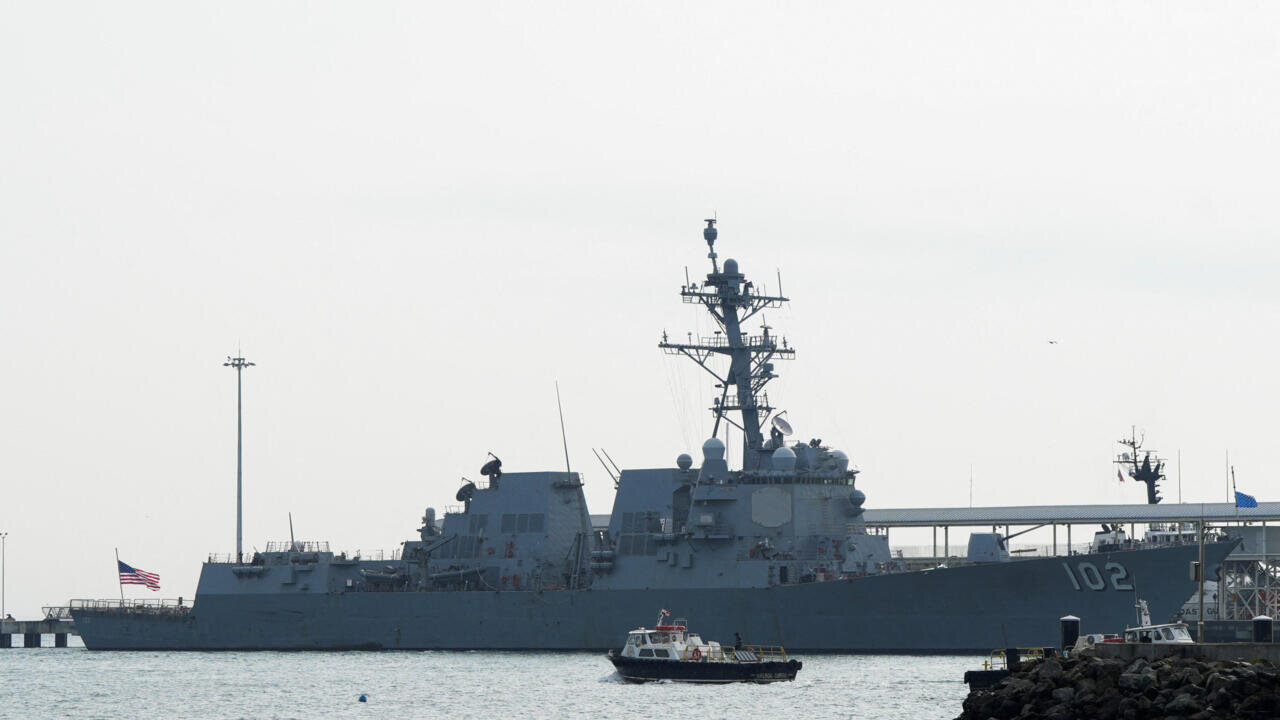Driven by Venezuela’s oil riches, Trump intensifies clash with Maduro government

TEHRAN – Tensions between Caracas and Washington are mounting amid the White House’s continued push for regime change in Venezuela.
The United Nations Security Council held a rare session on Friday following deadly U.S. military strikes against Venezuelan boats in the southern Caribbean, which claimed the lives of 21 people. UN officials warned that the attacks have increased regional tension and could threaten peace.
Russia and China strongly condemned Washington at the session. Russia’s Ambassador to the United Nations, Vassily Nebenzia, told the 15-member UN council the “boats that people were on were simply fired upon in the high seas without a trial or investigation.” Nebenzia added that this was done “according to the cowboy principle of ‘shoot first’. And now we’re being asked to retroactively believe that there were criminals on board.”
America waged the aggression under the pretext of drug smuggling. Venezuelan officials, however, view the strikes as provocative and a violation of sovereignty.
The Venezuelan ambassador told the meeting that, based on the U.S. military build-up in the region and Washington’s “belligerent action and rhetoric,” his country was “facing a situation in which it is rational to anticipate that in the very short term an armed attack is to be perpetrated against Venezuela.”
On October 9, the permanent representative of Venezuela to the UN wrote to the Security Council stating that the “ulterior purpose” of the U.S. actions continues to be to “advance its policies of regime change.”
Caracas has also reported overflights by U.S. fighter jets near its shores and the detention of a fishing boat in Venezuelan waters, while Washington claimed that two Venezuelan military aircraft flew over a U.S. Navy vessel in international waters.
According to the New York Times, President Maduro’s government has tried to open the door to better relations with the United States offering to allow American companies to invest in Venezuelan oil and other mineral wealth, to cut back on energy contracts with Russia, China, and Iran as well as offer preferential contracts to American businesses.
But the administration of U.S. President Donald Trump has rejected these moves and cut off diplomacy last week, according to the NYT. Other news outlets suggest the U.S. wants nothing less than Maduro’s government removal, a total political takeover disguised as a “return to democracy.”
Analysts say this proves what many in Latin America already know: Washington’s obsession with Venezuela is not about freedom or human rights. It’s about oil, power, and control. Venezuela has the largest proven oil reserves in the world and a government that refuses to bow to foreign interests.
This is not the first time America has attempted to overthrow Venezuela’s government. In addition to the 2002 coup against Hugo Chavez, openly supported by U.S. officials, there were attempts during Trump’s first term. Both Democratic and Republican administrations have waged a campaign of sanctions and economic pressure against Venezuela.
These sanctions have frozen billions of dollars in Venezuelan assets and hampered its oil industry. They have caused shortages and inflation, punishing ordinary Venezuelans while Washington blames the crisis on Maduro’s government.
For many Venezuelans, this is nothing new. They see a pattern that goes back decades. Every time a Latin American country asserts independence or nationalizes its resources, Washington tries to bring it back under control.
Despite years of economic pressure and international attacks, President Maduro remains deeply popular among large sections of the population. His supporters credit him for protecting Venezuela’s sovereignty, maintaining social programs, and standing firm against what they call “imperialist blackmail.”
Amid the U.S. threats, President Maduro has placed the armed forces and the 4.5 million-member Bolivarian Militia on alert, vowing to defend every inch of national territory.
Mass demonstrations have filled the streets of Caracas and other cities in recent weeks. Workers, students, and community organizations have rallied in defense of the Bolivarian Revolution. Their message is clear: Venezuela will not accept a puppet government installed by the United States.
Analysts suggest that the United States is likely to continue its pattern of interference and coercive actions amid its military buildup near Venezuela.
Recently, President Maduro stated that Venezuelan security forces foiled a “false flag” plot to plant explosives at the former U.S. Embassy in Caracas, closed since 2019, in an attempt to spark a confrontation with the United States.
Despite these provocations, millions of Venezuelans regularly flood the streets to show support for their democratically elected president.
Leave a Comment